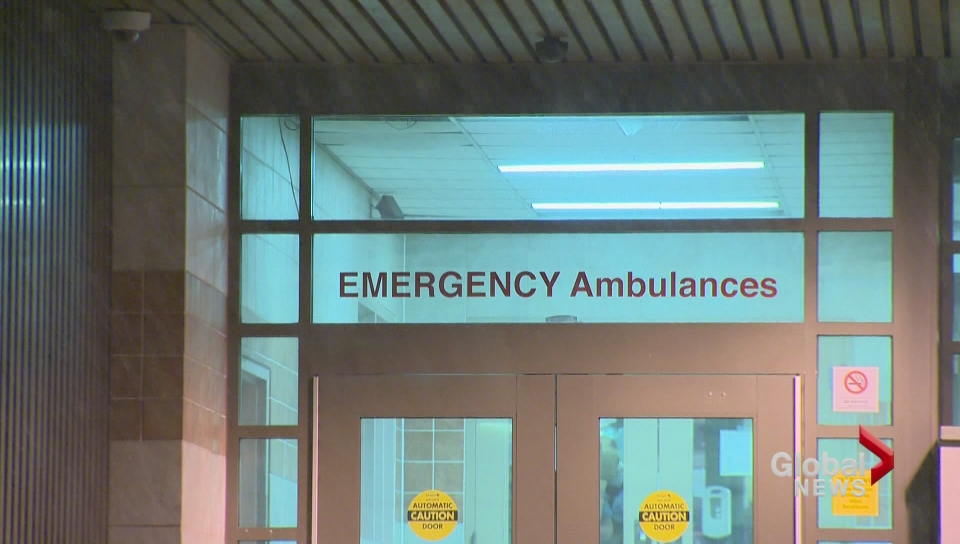TORONTO – Offering recuperating seniors free stays in retirement homes is one of the measures the Ontario government will be testing as it tries to tackle the issue of overcrowded hospitals.

The province announced in its budget last week that it would test a program that gives seniors vouchers for their stays in retirement homes in an effort to free up hospital beds, but it has not specified how long the stays will be or which communities the measure will be tested in.
Health Minister Eric Hoskins said the program aims to help so-called alternative-level-of-care patients, who are well enough to leave a hospital but don’t do so because they’re not able to live independently and don’t yet have a spot in a long-term care home or a home-care arrangement.
READ MORE: Ontario budget to address problem of patients in hospital hallways: finance minister
Such patients, many who are seniors, are an enormous expense to the health-care system and being stuck in a hospital isn’t good for their physical or mental health, Hoskins said.
“There are very few patients in ALC beds that love being there, or want to be there,” he said on Monday. “So the way I look at it is, the savings we accrue, we can afford to invest out of hospital, often at a fraction of the price and a better patient experience.”
The government has been facing mounting calls to act on overcrowded hospitals, where patients have ended up in hallways, boardrooms and even cafeterias when regular beds fill up.
In the budget, the government announced $24 million for “innovative” ways of dealing with patients in alternative-level-of-care hospital beds.
- ‘She gets to be 10’: Ontario child’s heart donated to girl the same age
- Bird flu risk to humans an ‘enormous concern,’ WHO says. Here’s what to know
- Shoppers faces proposed class action over claims company is ‘abusive’ to pharmacists
- ‘Bacterial vampirism’: Deadly pathogens attracted to human blood, study finds
READ MORE: Ontario debuts first balanced budget in a decade
Those funds will go towards what the government calls “demonstration projects,” one of which will be the voucher program, the health ministry said. The government will test the program, which is expected to be running this year, and use the results to inform future policies.
The voucher would cover the cost of recuperating in a private-pay retirement home until a senior is ready to move back home or into government-funded long-term care. Hoskins said the stays provided through the vouchers would be transitional.
A similar program has been running in the Hamilton Niagara Haldimand Brant Local Health Integration Network since October 2014, giving seniors temporary stays in retirement homes at a fraction of the cost of keeping them in hospital beds, according to the LHIN.
Alternative-level-of-care patients make up about 15 per cent of patients in Ontario hospitals, according to the government. And in over-capacity hospitals, they take up beds that are needed by patients with acute medical problems.
READ MORE: More than 2,900 Ontarians with developmental disabilities live in long-term care facilities
Ontario Retirement Communities Association CEO Laurie Johnston said her organization, which represents most of the province’s retirement homes, has been in talks with the government about using the voucher program.
She said retirement homes have long worked with the province’s home and community care organizations in getting government-funded respite and support services to their residents.
“This is really just an extension of the program to a segment of the population who perhaps would have had difficulty affording private-pay retirement living while they recuperate,” Johnston said. “This would make an opportunity for them to recuperate and build their strength as they move on to their next step.”
Linda Haslam-Stroud, president of the Ontario Nurses’ Association, said she’s also spoken with senior civil servants about the use of the voucher program and she’s hopeful they’ll be successful in moving alternative-level-of-care patients out of hospital more quickly, freeing up beds for other patients.
READ MORE: Ontario hospital emergency department wait times shorter: report
It’s needed, she said, as all year round nurses have to care for patients who are left in hallways as they wait for a bed in a hospital room.
The 2017 budget includes an increase of $518 million in hospital funding, a three-per-cent boost, which came after five years of funding restraint and warnings from hospitals that their funding hasn’t allowed them to keep up with the increasing demand for care.
The budget also promises an extra $9 billion for hospital construction projects over 10 years, and announced newly approved hospital construction projects in Niagara, Windsor, Hamilton, Mississauga and the Weeneebayko hospital replacement project in northern Ontario, as well as a new $2.5 million for the planning of an expansion to the Centre for Addiction and Mental Health in Toronto.



Comments